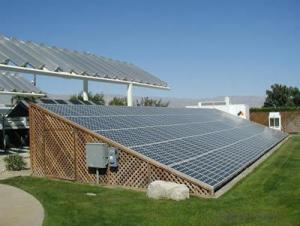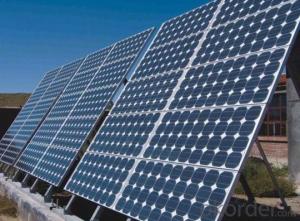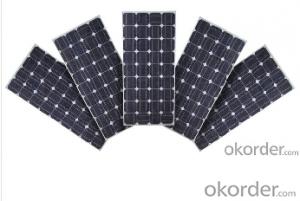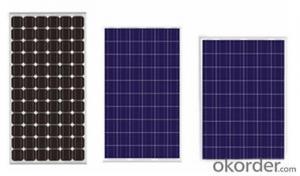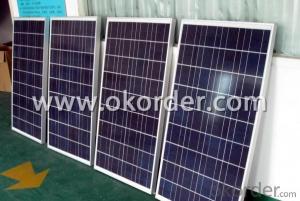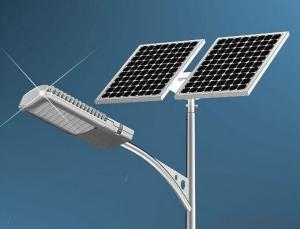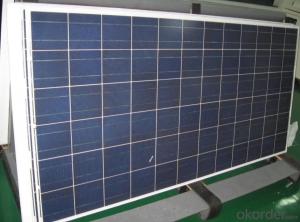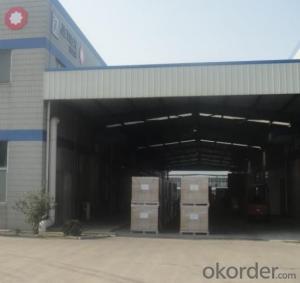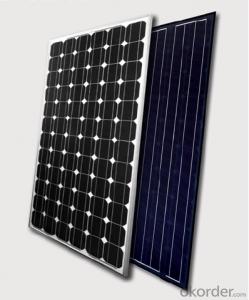Xcel Solar Panels 310W CNBM Solar Polycrystalline Series III (300W—310W)
- Loading Port:
- China main port
- Payment Terms:
- TT OR LC
- Min Order Qty:
- 10000 watt
- Supply Capability:
- 500000 watt/month
OKorder Service Pledge
OKorder Financial Service
You Might Also Like
Specification
CNBM Solar Polycrystalline Series III (300W—310W)
Characteristics
Max Power Voltage Vmp(V) | 36.6 | 36.9 | 37.2 | 37.5 | ||
Max Power Current Imp(A) | 7.66 | 7.73 | 7.8 | 7.87 | ||
Open Circuit Voltage Voc(V) | 44.2 | 44.6 | 45.1 | 45.4 | ||
Short Circuit Current Isc(A) | 8.26 | 8.32 | 8.41 | 8 | ||
Max Power Pm(W) | 280 | 285 | 290 | 295 | ||
Temperature Coefficient of Cells
NOCT | 45℃±2℃ | |
Temperature Coefficients of Isc (%/℃) | - 0.0492 | |
Temperature Coefficients of Voc (%/℃) | – 0.3374 | |
Temperature Coefficients of Pmp (%/℃) | –0.4677 | |
Mechanical Data
Dimension | 1638 x 982 x 40 mm | |
Weight | 19.5kg | |
No. of Cells and Connections | 60 (6 x 10) | |
Tolerance | 0~+5W | |
Cell Monocrystalline Cell | 156 x 156 mm | |
Packing | 700 Pcs/40ft(H) Container | |
Limits
Operating Temperature | –40 °C to +85°C | |
Storage Temperature | –40 °C to +85°C | |
Max System Voltage | 1000VDC(IEC) / 600VDC(UL) | |
IV Curve
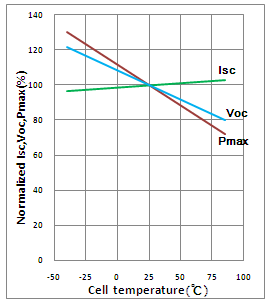
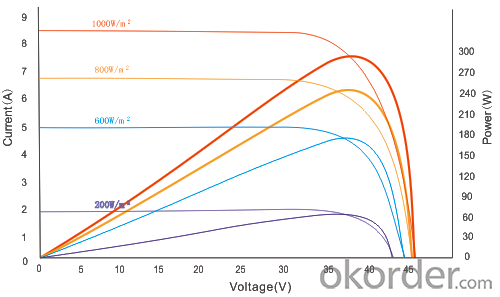
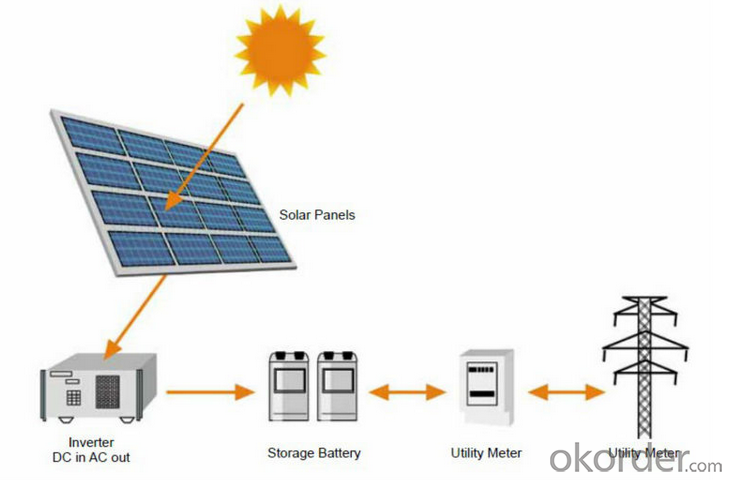
Image
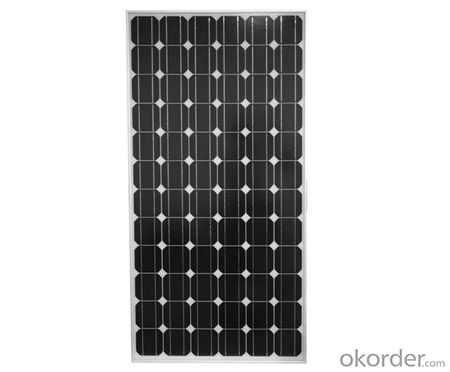
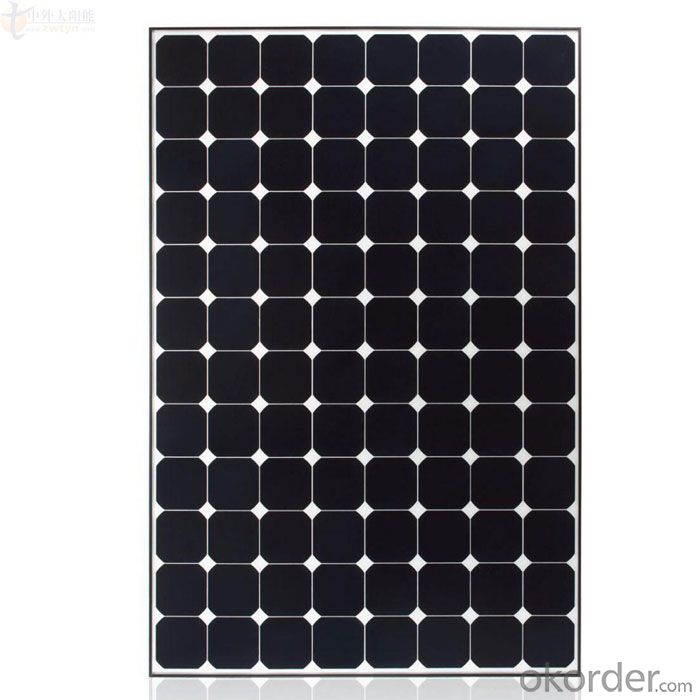
Guarantees
Products Guarantee 12 yrs free from defects in materials and workmanship
Performance Guarantee No less than 90% within 10yrs and no less than 80% within 25yrs
Certificates TUV (IEC61215&IEC61730), VDE(IEC61215&IEC61730), UL, CE
FAQ
1. Q: Do you have your own factory?
A: Yes, we have. Our factory located in Jiangsu province.
2. Q: How can I visit your factory?
A: Before you take off from your country, please let us know. We will show you the way, or arrange time to pick you up if possible.
3. Q: Do you provide free sample?
A: Usually we do not offer free sample
4. Q: Could you print our company LOGO on the nameplate and package?
A: Yes, we can do that.
- Q: I have two solar panels that were going to be trashed at work. I want to use them to charge batteries on my RV but i noticed they put out around 20 volts in direct sunlight. So i am wondering: -isn't this way too much voltage for a 2 volt system? -do a need some sort of a regulator connected to keep them from overcharging?
- You okorder /
- Q: i want to go off grid with solar panels but i need to know how many vots and watts i need to power my house
- You need an expert to figure out how many watts of power you will need and how many solar panels you will need to generate the wattage necessary to run your home plus charge the batteries for night use.
- Q: Can solar panels be used in areas with high pollution levels?
- Yes, solar panels can be used in areas with high pollution levels. While pollution may slightly reduce the efficiency of solar panels by blocking some sunlight, they can still generate electricity. In fact, using solar panels in such areas can be beneficial as they provide a clean and renewable energy source, helping to reduce reliance on polluting fossil fuels.
- Q: i have this usb solar panel charger i am building and the solar panel is about 2by .5quot;, so i was wondering if a led light can power it, if so will one be good or would i need more? if so how many?
- While I understand Search's answer, because it was also my first reaction, am I wrong in thinking that this is some sort of science fair project, for which you need to power a solar panel indoors as though it were being illuminated by the Sun? The question at least makes sense in that context. Solar panels provide modest power even from room lighting, sometimes calculators are powered by small panels, but that is a tiny amount of current. . You'll probably do better by asking this question (a bit more clearly) over in Engineering. It's not really an Astronomy Space question, though there may be some crossover between the two groups of users. Meanwhile, while some white LEDs can be pretty dazzling to the eye, I don't know how much actual power they are pulling down compared to what you'll need the panel to generate, but I don't see why it shouldn't work. I just don't know how many LEDs you would need. . .
- Q: Can solar panels be used to power a shopping mall?
- Yes, solar panels can be used to power a shopping mall. By installing a sufficient number of solar panels on the mall's rooftop or in nearby areas, it is possible to generate enough electricity to meet a significant portion of the mall's power requirements. This can help reduce the mall's reliance on traditional grid electricity and promote the use of clean, renewable energy sources.
- Q: want to add solar panels to manufactured home, and we get a lot of snow up here in the NW. Wondering if it would interfer with the roof load.
- The okorder if you would like some ideas on how to do this.
- Q: Can solar panels be used to power a restaurant?
- Yes, solar panels can be used to power a restaurant. Solar panels harness energy from the sun and convert it into electricity, which can be used to power various appliances and systems in a restaurant, including lighting, refrigeration, cooking equipment, and HVAC systems. By installing solar panels, restaurants can reduce their dependency on traditional energy sources, lower their electricity bills, and contribute to a cleaner and more sustainable environment.
- Q: Can solar panels be installed on train stations?
- Yes, solar panels can be installed on train stations. In fact, many train stations around the world are adopting solar energy systems to power their operations and reduce their carbon footprint. Solar panels are installed on the roofs or canopies of train stations to harness sunlight and generate electricity, which can be used for lighting, heating, cooling, and other station facilities. This renewable energy source makes train stations more sustainable and helps in the transition towards a greener transportation system.
- Q: Can solar panels be installed on bridges or highways?
- Yes, solar panels can be installed on bridges or highways. In fact, many countries have started implementing solar panels on such structures to harness solar energy and generate electricity. This integration of renewable energy technology with infrastructure not only helps produce clean energy but also optimizes space utilization and promotes sustainability.
- Q: There is a charge controller that has what i believe to be only port for a solar/ wind turbine control panel and i don't know if it has more than port for panels. So would i be abed to link 2 panels to port or do you think the controller has more than portBTW it is for marine use.
- Solar panels are like batteries, hook them up in series and you increased the voltage, hook them up in parallel and you increased the current. You should review your first year physics notes on the matter.
Send your message to us
Xcel Solar Panels 310W CNBM Solar Polycrystalline Series III (300W—310W)
- Loading Port:
- China main port
- Payment Terms:
- TT OR LC
- Min Order Qty:
- 10000 watt
- Supply Capability:
- 500000 watt/month
OKorder Service Pledge
OKorder Financial Service
Similar products
Hot products
Hot Searches
Related keywords
